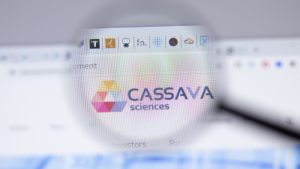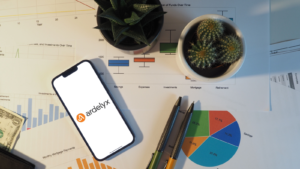Biotech stocks are known for their high volatility and potential for massive gains. The success in the sector often hinges on progressive and often groundbreaking medical advancements. Any concerns relating to upcoming drugs can have severely negative effects on stock prices.
As per Precedence Research, the global biotechnology market is projected to grow from $1.38 trillion in 2023 to approximately $4.25 trillion by 2033. The expected growth is largely to be driven by advancements in various biotechnological fields, including bio-pharmacy, bio-industries, bio-services and bio-informatics.
Although the market is projected to grow at a healthy rate, there are several biotech stocks that are showing signs of weakness. These stocks face several risks, including regulatory hurdles and financial instability that can quickly erode investor confidence. Here’s a look at such three biotech stocks that are headed for a downturn as the month closes, making them prime candidates for careful review and possible divestment before the end of July.
Moderna (MRNA)

Moderna (NASDAQ:MRNA) faces significant challenges that cloud its investment potential. After its meteoric rise during the COVID-19 pandemic, Moderna’s stock has encountered volatile waters, largely due to unsustainable revenue growth and mounting competitive pressures.
Moderna’s once-unique mRNA platform is now less distinctive as competitors like Pfizer and BioNTech enhance their offerings. With a broad array of firms advancing their mRNA technology, Moderna faces stiff competition, which could erode its market share and pricing power.
Moderna’s financial performance has dramatically reversed from its pandemic highs. The company, which saw its revenue peak at $19.26 billion in 2022, reported a stark decrease to $6.84 billion the following year, equating to a nearly 64% decline. The first quarter of 2024 alone saw revenue plummet to $167 million, a staggering 91% drop from the same period last year. This troubling trajectory signals deep-rooted issues in product demand and market saturation, particularly as the urgency for COVID-19 vaccinations wanes.
Cassava (SAVA)

Cassava (NASDAQ:SAVA) has been at the center of significant controversy and speculation within the biopharmaceutical sector, particularly around its Alzheimer’s treatment candidate, Simufilam.
The company has faced accusations and scrutiny over the integrity of its clinical data, a situation that significantly risks its operational standing. Notably, the company was embroiled in allegations concerning data manipulation, with a key consultant indicted for fraud. These controversies cast a long shadow over the credibility of Cassava’s research findings and added a layer of uncertainty that could impact FDA approval processes and investor confidence.
Moreover, Cassava’s entire valuation hinges precariously on the success of Simufilam, its flagship Alzheimer’s drug. While the drug has shown some promise in early trials, the Alzheimer’s drug development landscape is notoriously fraught with failures.
Nearly 99% of Alzheimer’s trials have failed, pointing to the exceptional difficulty in achieving a breakthrough in this area. Cassava’s lack of diversification in its drug pipeline exacerbates the risk, as any negative outcome from the ongoing trials could devastate the company’s stock value.
Ardelyx (ARDX)

Ardelyx (NASDAQ:ARDX) has recently faced numerous headwinds that may concern investors.
The company’s prospects are heavily dependent on its key product, Xphozah. The drug is approved for treating hyperphosphatemia in patients with chronic kidney disease. Despite a successful launch, generating $15 million in sales during Q1 2024, there are looming threats from the emerging GLP-1 weight loss drug market.
Despite posting a revenue of $46.02 million in Q1 2024, up threefold from the same period the previous year, Ardelyx has a history of operational losses since its inception. The company’s financial health, while currently stable with $202 million in cash reserves, is precarious due to the high costs associated with the commercialization and further development of its drugs. A failure to broaden its market or adjust to competitive pressures could lead to financial distress for the company.
Perhaps more concerning is the recent trend of insider selling. Since the beginning of the year, Ardelyx executives have continued to sell their shares. Such substantial selling by insiders, including the CEO and CFO, could be indicative of a lack of confidence in the company’s future prospects.
On the date of publication, Mohammed Saqib did not hold (either directly or indirectly) any positions in the securities mentioned in this article. The opinions expressed in this article are those of the writer, subject to the InvestorPlace.com Publishing Guidelines.
On the date of publication, the responsible editor did not have (either directly or indirectly) any positions in the securities mentioned in this article.
